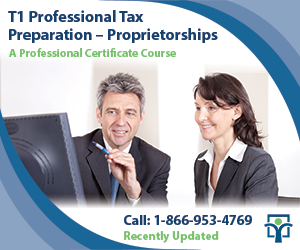Last updated: June 07 2016
Make it CRA-Proof: June 15 Tax Filing Deadline for Proprietors
Other than the recording and documentation of business expenses, the most common area that causes problems for proprietors is the claiming of mixed-use expenses.
Mixed-use expenses are those expenses that are partly to earn income and partly for personal use. The most common of these are entertainment expenses, home office expenses, and expenses for the use of the vehicle owned by the proprietor. In each case, the asset in question is used both to earn income from the business and is also used personally.
Entertainment expenses include the costs of meals, sports tickets and several other expenses, including tips, so long as those expenses were incurred to entertain customers or prospective customers in order to do business, or with an eye to increasing revenue. A log showing the date, activity, client and costs should be maintained and receipts must be kept. Personal meals and entertainment are not deductible and, even when entertaining a client, in most cases only 50% of the actual expenses may be claimed.
In the case of the home office, the proprietor may claim the expenses related to the home office if it is the principal place of business or the workspace is used exclusively to earn income from the business. Proprietors may claim a pro-rata portion of utilities, maintenance costs, rent, mortgage interest, property taxes and insurance. The total expenses of the home must be prorated according to the ratio of square footage used for business to the total square footage of the home. Although, technically, a proprietor may also claim capital cost allowance (CCA) on the value of the home office, this is generally not recommended if the home is the taxpayer’s principal residence because claiming CCA precludes any claim for the principal residence exemption on that portion of the home.
 |
When a proprietor uses his own vehicle to earn income from the business, an auto log must be kept because only the business-use portion of the total expenses of owning and operating the vehicle may be deducted. The costs of gas and oil, maintenance and repairs, insurance, license, etc. must be prorated according to the ratio of the kilometres driven for business to the total kilometres driven for the year. In addition, the depreciation on the vehicle may be claimed using capital cost allowance, but the CCA claim must also be prorated according to the ratio of business to total use.
Learn more about these and other expenses of proprietors as well as reporting income, dealing with inventory, expenses of employees, and filing of T4 slips and the GST return in the Knowledge Bureau Course: T1 Professional Tax Preparation – Proprietorships.





